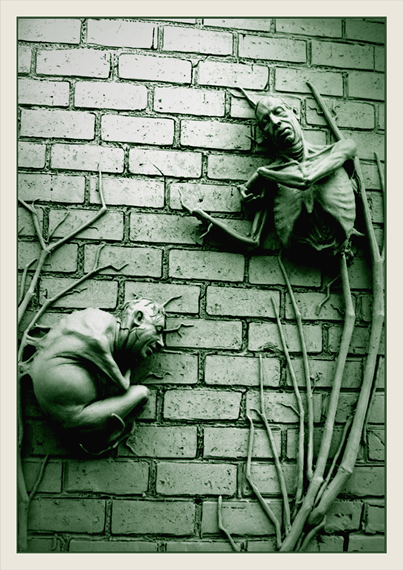I broke.
There’s a difference between breaking and being broken. To break is to fall apart. To shatter. To BE broken is to linger in that state: pieces on the floor, jagged edges sharp and untouchable.
Picture… a teapot. Sure, why not. This teapot seemed perfectly fine when it left the factory. In fact, it was very valuable; when it was brought home the whole family came to admire it.
But maybe the teapot came with an issue no one could see. Maybe its walls were a little thinner, less resilient than the others in its lot. Maybe it was unevenly manufactured. Imbalanced.
Over time, the porcelain began to discolour. It retained the memories of all the tea it has made. You can’t see this darkness unless you look inside. But it’s there.
The teapot isn’t flawless any more.
At first the problems are small; tiny spider web cracks lengthening and connecting, forming spots that can’t be trusted to be strong. You can see them if you know what to look for: hair-fine fault lines marring the rest. You might make a note to yourself to be gentler, not to put too much pressure on something that is already falling apart.
The word for cracking porcelain is crazing.
Then one day you pick up this teapot, just like you have every day of your life, and it shatters in your hand. Everything it held inside bursts out, making a mess so big it seems it will never be cleaned up. Some pieces will cut you when you try to retrieve them. Others don’t seem to fit anywhere. It’s overwhelming. You gather the pieces up as best you can and dump them in a box to deal with later.
Months pass. You take up cross-stitch, you knit, you watch terrible reality TV just to keep yourself distracted. You stay up all night because every time you close your eyes you see those broken pieces and you can’t imagine how you’ll begin to put them back together. And unless you’re willing to throw it all away you’ve got to fix this at some point.
You learn to ask for help. Someone to help hold the pieces together while the glue dries. You learn to accept the pot’s new limitations. You handle it more carefully. You let yourself appreciate its imperfections, its tiny missing chips. And while you worry every day that it may shatter again, you wake in the morning and use it anyway. After all, it’s the only teapot you have.
I broke. But I’m not broken.
If you are struggling with mental illness, you are not alone. Today is Bell Let’s Talk Day, a day to raise awareness of mental illness and to support those affected. For every post today on Facebook, Twitter, or Instagram with the hashtag #BellLetsTalk, Bell Canada will donate 5 ¢ to Canadian mental health initiatives that support people like me.









